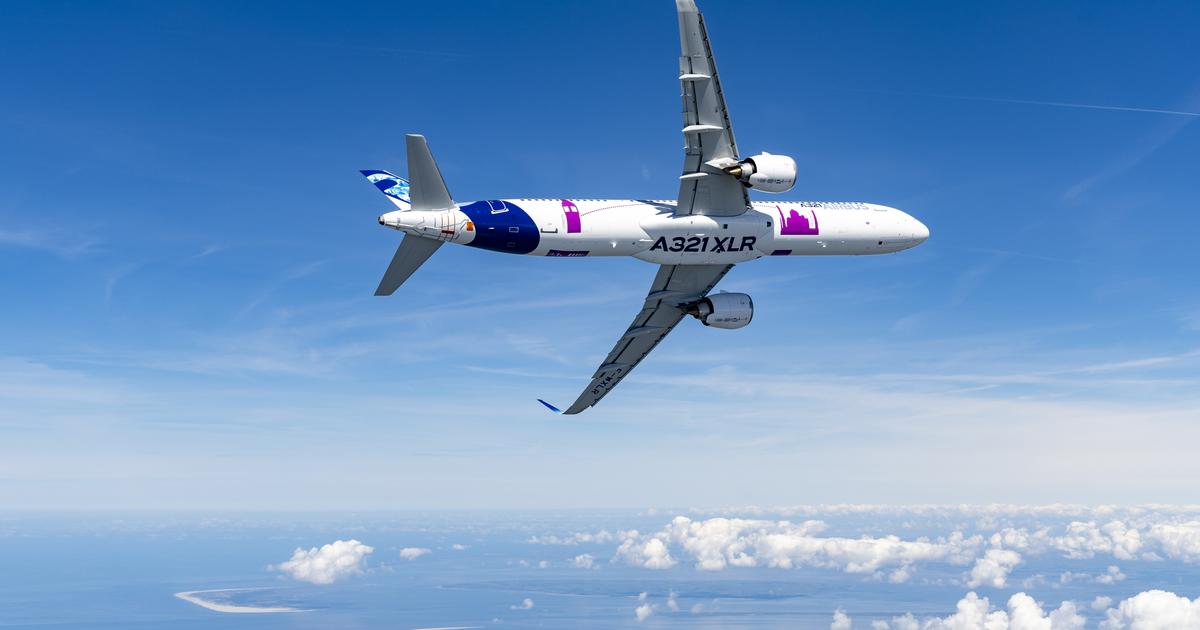Record results for Airbus in 2023, which further strengthens its dominance in the global aeronautical market.
The European giant recorded a net profit of 3.8 billion euros.
For its part, Boeing, plunged into a serious industrial crisis linked to recurring quality problems with the 737 Max, lost money for the fifth consecutive year: its net loss stands at $2.2 billion in 2023, for sales of 77.7 billion.
Airbus' performance was driven by the increase in deliveries of commercial aircraft, a key indicator since it is upon receipt that airlines and lessors pay more than 70% of the price of aircraft ordered years earlier.
However, in 2023, Airbus managed to achieve, and even exceed its objective, missed in 2022, of 720 aircraft delivered, with 735 aircraft (+11% over 2022) delivered to 87 customers.
Certainly, Airbus has not yet returned to its industrial peak of 2019, the last pre-Covid year, during which it reached a record, with 863 aircraft delivered.
But it should reach this level from 2024 with a target set at 800 this year.
The challenge for Airbus, whose order intake reached a historic level in 2023 with 2,094 net contracts signed, is not so much to sell new planes but to produce.
And much more in order to reduce waiting times which exceed eight years, in particular for A320neo family aircraft.
At the end of 2023, the European manufacturer's order book has indeed crossed the threshold of 8,500 aircraft to be produced, or 8,598 precisely.
Which represents 11.5 years of activity at current production rates.
By comparison, Boeing's order book, with more than 5,900 planes at the end of 2023, is 35% lower than that of its European rival.
Read alsoAirbus shatters its sales and deliveries record in 2023
Milestone of a thousand planes in 2026
2023, described as “
a memorable year, with exceptional sales and deliveries
”, by Guillaume Faury, executive chairman of Airbus, reflects the strong demand from airlines, eager to modernize their fleet with recent aircraft that consume less fuel and respond to the strong recovery in air traffic.
2023 also marked a stage in the trajectory of increased production, which should lead Airbus to cross the symbolic milestone of a thousand aircraft produced per year by 2026. This, by increasing the production of all these programs at the same time. time.
Airbus plans to progress this year to reach a rate of 65 A320neo assembled per month by the end of 2024 then its target objective of 75 aircraft of this type per month in 2026, compared to 48 per month in 2023. Or 900 medium-haul aircraft within three years, compared to 571 last year.
At the same time, Airbus plans to assemble 4 A330s per month in 2024, compared to 3 at the end of 2023, as well as 9 long-haul A350s per month by the end of 2025, compared to 6 per month at the end of 2023.
This is a colossal industrial challenge.
Airbus, which wanted to go faster, had to slow down the pace of its trajectory, due to the persistent difficulties of subcontractors, and adapt it after carrying out a feasibility study with the supply chain.
This, while the international and operational environment remains complex with supply difficulties, tensions within logistics chains and rising energy costs.
Hence constant attention paid to the ecosystem of some 12,000 suppliers around the world – they represent around 65% of the added value of aircraft –, from the largest to the smallest.
All it takes is for one equipment manufacturer to fail to delay the final assembly plants (FAL) at the end of the chain.
Despite these risks, Guillaume Faury wants to be optimistic.
“
A number of factors are coming together to help us achieve our goals, including the increased flexibility and capacity of our global industrial system
,” he recalls.
The manufacturer has in fact strengthened its network of A320neo assembly plants so that all of them are capable of producing the A321neo, the best-seller in the range, more than 5,600 units purchased by 100 companies around the world. .
Alone, with its LR and XLR versions (the latter must be certified in the second quarter of 2024), this aircraft, which has no equivalent at Boeing, represents 65% of the order book for the A320neo family
.
On December 27, the first A321 assembled in the brand new final assembly line (FAL) in Toulouse was delivered to the Turkish company Pegasus.
This line will reach its full capacity in 2025. The group will then be at the head of ten FALs installed on three continents - Europe (Hamburg and Toulouse), United States (Mobile in Alabama) and China (Tianjin) -, which will give it more industrial agility.

